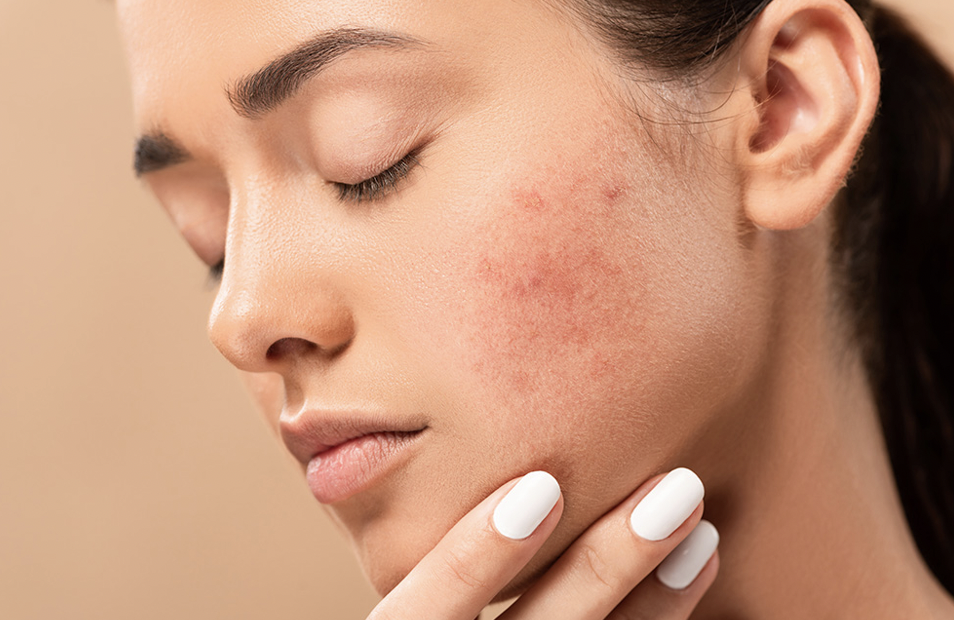
Your skin is your body’s largest organ, and it deserves proper care. While many skin concerns can be managed at home, there are instances when seeking professional help is essential. Here are some signs that it’s time to consult a dermatologist:
Changes in Moles or Skin Growths
Moles and other skin growths are common, but any noticeable changes in their size, shape, color, or texture should not be ignored. For example, if a mole suddenly becomes larger, changes color, has irregular borders, or starts to bleed or itch, these could be signs of melanoma, a serious form of skin cancer. A dermatologist is trained to evaluate these changes and can perform a biopsy if necessary to determine if the growth is benign or malignant. Early detection of skin cancer significantly increases the chances of successful treatment, making it essential to consult a dermatologist if you notice any unusual changes in your skin.
Persistent Acne
While occasional acne breakouts can often be managed with over-the-counter products, persistent or severe acne may require professional intervention. If you’ve tried various treatments without success, or if your acne is causing scarring, a dermatologist can help. They can prescribe stronger medications, such as topical retinoids, oral antibiotics, or even hormonal treatments, tailored to your specific type of acne. Dermatologists can also provide treatments like chemical peels, laser therapy, or extractions to reduce acne and improve the appearance of your skin. Consulting a dermatologist can prevent long-term damage and help you achieve clearer skin.
Eczema or Psoriasis
Eczema and psoriasis are chronic skin conditions that can cause significant discomfort and affect your quality of life. Eczema is characterized by red, itchy, and inflamed skin, while psoriasis often presents as thick, scaly patches. Both conditions can be challenging to manage without specialized care. A dermatologist can diagnose the type and severity of your condition and develop a personalized treatment plan. This might include prescription creams, oral medications, or light therapy to control flare-ups and alleviate symptoms. Regular follow-ups with a dermatologist are often necessary to monitor the condition and adjust treatment as needed.
Skin Cancer Concerns
Skin cancer is the most common form of cancer, but it is also one of the most preventable and treatable if caught early. Regular skin checks, either self-examinations or professional screenings by a dermatologist, are crucial for early detection. If you have a history of skin cancer, a family history of the disease, or spend a lot of time in the sun, you should see a dermatologist regularly for skin evaluations. Dermatologists can identify suspicious lesions that may require a biopsy and can provide guidance on how to protect your skin from further damage. Early detection is key to successful treatment, so don’t hesitate to consult a dermatologist if you have any concerns.
Persistent Skin Infections
Skin infections, such as fungal infections, bacterial infections, or viral infections like herpes, can sometimes become persistent or recurrent, making them difficult to treat with over-the-counter remedies. A dermatologist can accurately diagnose the type of infection and prescribe appropriate treatment, whether it’s topical, oral, or a combination of both. They can also help identify any underlying conditions that might be contributing to recurrent infections, such as diabetes or a weakened immune system. By seeing a dermatologist, you can receive targeted treatment to clear the infection and prevent it from coming back.
Aging Skin
As we age, our skin naturally undergoes changes, including the development of wrinkles, fine lines, age spots, and sagging. While these changes are a normal part of aging, they can sometimes lead to concerns about appearance and self-confidence. A dermatologist can offer various treatments to address these signs of aging, ranging from non-invasive options like chemical peels, microdermabrasion, and laser therapy to more advanced procedures like Botox, dermal fillers, and even surgical options. They can also recommend skincare products and routines that help maintain a youthful appearance and protect your skin from further aging.
Hair Loss
Hair loss can be distressing and can result from various causes, including genetics, hormonal changes, stress, nutritional deficiencies, or underlying health conditions. If you’re experiencing unusual or excessive hair loss, a dermatologist can help determine the cause through a detailed medical history, examination, and sometimes blood tests or scalp biopsies. Once the cause is identified, the dermatologist can recommend appropriate treatments, which may include topical treatments like minoxidil, oral medications like finasteride, or procedures like platelet-rich plasma (PRP) therapy. Early intervention by a dermatologist can help slow down hair loss and promote hair regrowth.
Remember, early detection and treatment are key to maintaining healthy skin. If you have any concerns about your skin, don’t hesitate to schedule a consultation with a dermatologist.
At ALC Lifestyle Clinic, our experienced dermatologists offer comprehensive skin care solutions tailored to your specific needs. Contact us today to book an appointment.

